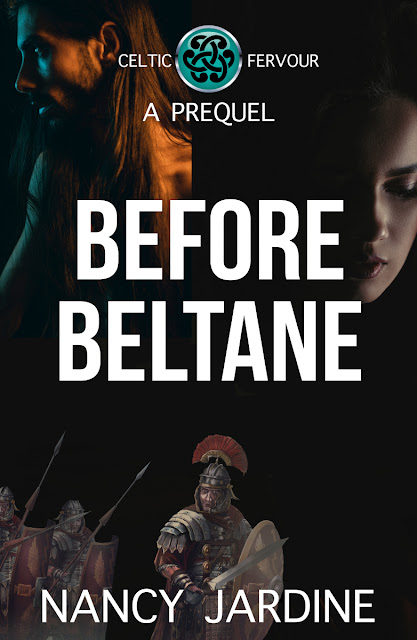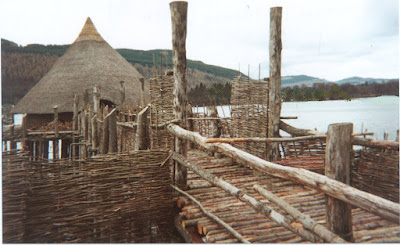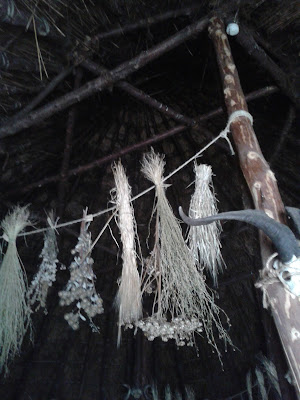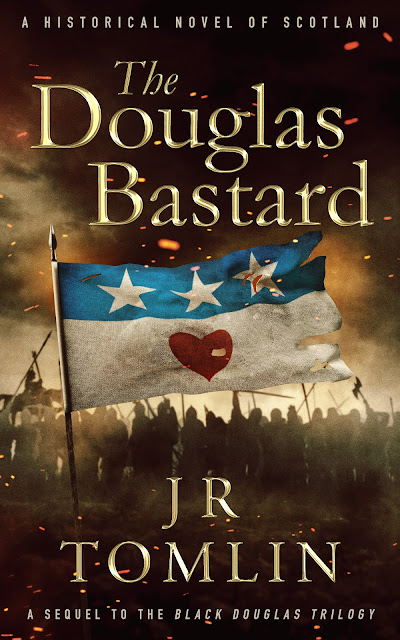Two lives. Two stories. One future.
AD 71 Northern Britannia
At the Islet of the Priestesses, acolyte Nara greets each new day eager to heal the people at Tarras Hillfort. Weapon training is a guilty pleasure, but she is devastated when she is unexpectedly denied the final rites of an initiated priestess. A shocking new future beckons for Princess Nara of the Selgovae…
In the aftermath of civil war across Brigantia, Lorcan of Garrigill’s promotion of King Venutius is fraught with danger. Potential invasion by Roman legions from the south makes an unstable situation even worse. When Lorcan meets the Druid Maran, the future foretold for him is as enthralling as it is horrifying…
Meet Nara and Lorcan before their tumultuous meeting of each other in The Beltane Choice, Book 1 of the acclaimed Celtic Fervour Series.
Life in the times of…northern Britannia (AD/CE) 71
Worldbuilding.
Time travelling to Brigantia (north England) and Selgovae territory (South Scotland) in 71 (AD/CE) would be utterly stupendous.
However, since that’s a pipedream, grasping elusive details and making some sense of them helps me to depict settings in Before Beltane, a Prequel to the Celtic Fervour Series. Worldbuilding rises from the tiniest particles of research and is built on, layer upon layer. Before Beltane is a book of two halves about the very different lives of Lorcan (Brigante) and Nara (Selgovae) before their tumultuous meeting in Book 1 of the series. So, what is the Late Iron Age landscape they each inhabit at the beginning of the year 71?
What does Lorcan see around him? – Roundhouses.
Step inside. Sit down by the central fireside, encircled by flat hearthstones set on a beaten earth floor strewn with brackens and mosses for extra warmth. Low walls nestle under a high conical roof of stout elm beams covered with a weatherproofing reed thatching. The walls are hurdle frameworks of hazel, or another pliable wood, packed with mosses and insulated by a daub of clay, soil, straw and manure. Construction materials are governed by what is locally sourced.
 |
Inside it’s dim, but a glowing fire and reed torches set in iron wall brackets, help dispel the gloom. It’s surprisingly cosy when a fire is lit. It’s not too smoky since the fumes drift upwards, hover at the roof point before slowly dissipating via the thatching. Beds are simple mattresses of brackens and loose fillings, with blankets of woven cloth or furs, to keep the sleeper cosy. Seating might be a pile of furs, a cloth draped hay bale, or perhaps a comfortable log.
Nara sees crannog dwellings. – What’s a crannog?
A single roundhouse is built on top of a wooden platform, its supports driven deep down into the bed of a loch creating an artificial island. Walls have a double layer of woven panels packed tightly with reeds, sheep’s wool, bracken or mosses, renewed during the summer months as needed to combat the perennial dampness that seeps up from the loch waters. Notwithstanding, this insulation means the crannog house isn’t quite so dark inside. The flooring is multiple layers of tree trunks (alder) laid parallel to each other and strewn with brackens and mosses. The clay base of the central firepit is topped with piled hearthstones which prevents sparks from the flames from setting fire to the wooden floor. Access to and from the shore is by a substantial log-walkway. Nara, however, lives in the crannog village of the priestesses of goddess Dôn. There, the sacred-nemeton roundhouses are built on a more substantial man-made island, a true crannog that lies further out in the lochan.
Inside the roundhouse, woven panels draped with animal skins or woollen cloth separate living and sleeping areas. Domestic animals may be housed in small enclosures next to the doorway, especially during the winter season, providing more warmth to the house and creating…delightful aromas that Iron Age people don’t even notice.
Items hang from crossbeams: for food preparation; for herbal remedies; or are drying clothes. Across northern Britannia there are the single roundhouses of outlying farms; elsewhere small clusters form a hamlet. Iron Age hillforts with multiple roundhouses are also dotted across the Brigantia landscape, the king or a chief inhabiting the largest house. Wealth is evident in the amount of decorative detail worn in iron or silver jewellery, or on weaponry. Cookware can also indicate wealth. Gold items are rare in the north, as is coinage which is unlikely to be locally produced. Bartering is the norm rather than commerce based on money exchange. Nonetheless, gold is sometimes acquired through tribal interactions and…via Roman bribes!
What do they talk about? – Gossip and Politics of the day.
News travels at the speed of a walk, or a horse ride, though some updates take a long while to reach outlying places. Hot topics around the firesides are about how the civil war across the Roman Empire, which occurred in 68/69, affects everybody now. The civil war across Brigantia, that culminated in 69, is also still worth plenty of grumbles!
On a lighter note, what continues to provide the best laughs?
Emperor Nero’s suicide (assisted or not?) which, in 68, prompted the beginning of the civil war across the Roman Empire. With no nominated heir for Nero, the serious ‘tussle’ to declare the next Roman emperor provides endless gossip. Brigantes are learning that members of the Senate in Rome hold power and sway, though in not nearly as violently a method as those in control of the Roman legions. Being Roman ‘top dog’ needs the backing of Senate, and the ability to maintain allegiance from the bulk of the legions across the empire.
The Brigantes still find amusement in the three men who tried and failed to become Roman emperor between early summer 68 and the summer of 69. Galba who ‘forgot’ to name Otho as his successor is ridiculed, since Otho quickly had Galba ‘eradicated’. They chuckle about Otho being replaced nearly as swiftly by Vitellius. However, the fireside mood changes when talk turns to Vespasian, the soldier who ousted Vitellius. Vespasian has maintained his fierce grip on most of the Roman Empire for more than a year and a half. The tribesmen are learning that Vespasian will not be satisfied till Brigantia is within the province of Britannia!
Less laughed about in 71 – Cartimandua and Venutius.
Many Brigantes are heartily glad that the civil war between Queen Cartimandua and King Venutius is eventually over. Some acknowledge that as a ‘client queen’ of the Roman Empire, from around the year 50, Cartimandua’s arrangements (bribes) with Rome kept the invaders out of Brigantia. Regrettably, old habits die slowly. Some still hanker after the semblance of stability that Cartimandua provided. Others gripe about whether Cartimandua is alive and living-it-up in Rome, having been secreted away from her last battle against the forces of her ex-husband Venutius. Many couldn’t care less about her fate. People like Lorcan strive to make all Brigantes believe that King Venutius will repel the Roman invasion that’s imminent. Very disturbingly, some small Roman forts have already popped up on Brigante territory.
Talk at Selgovae firesides.
While civil war talk goes back and forth across Brigante territory, just a little further north Nara’s tribe are highly aware that if Brigantia falls to Rome, and is officially absorbed into the Roman Province of Britannia, then Selgovae territory is next under threat! Roman navy ships looking for places to land on the shores of the Selgovae firth (Solway) is a nightmare that they’re already having to confront.
Who do they have faith in?
Brigante and Selgovae tribes follow the druid faith, even though the Roman usurpers have systematically tried to eradicate the druids from Britannia. Druid power has been diminished since the fall of Mona (Anglesey), but there are still some priests and priestesses left to continue the traditions. Lorcan, like all around him, constantly pays homage all day long to his favoured deities, both local and universal. It’s a part of daily life, and not so different from the Roman soldiers across Britannia who worship their own deities. Worship of multiple gods is generally accepted by Rome, but the political power of the druids is not – whether in Gaul or in Britannia.
Lorcan fears the power of the druids, especially in the Sacred Groves. Nara, on the other hand, has been raised to become a druid priestess.
How do I know the information above is correct?
Actually, I don’t. P. Cornelius Tacitus is the main ‘go-to’ writer for historical details of early Roman Britain, written from his Roman perspective and with a disputable degree of bias. There are no Iron Age writings to give balance so, as an author of fiction, I have to delve deeply into the archaeology that’s been uncovered. Archaeological interpretations can vary, so keeping up to date with them is a delightful challenge. Living History museums, like the Scottish Crannog Centre, are ideal for visualising interpretations of archaeological data and I love visiting them! The many scientific disciplines used in current archaeology present educated guesses, and it’s those subtle details that I pounce on for worldbuilding in my writing.
Social Media Links:
Website • Blog • Twitter • Facebook • LinkedIn • Pinterest • BookBub • Amazon Author Page • Goodreads





















.png)





